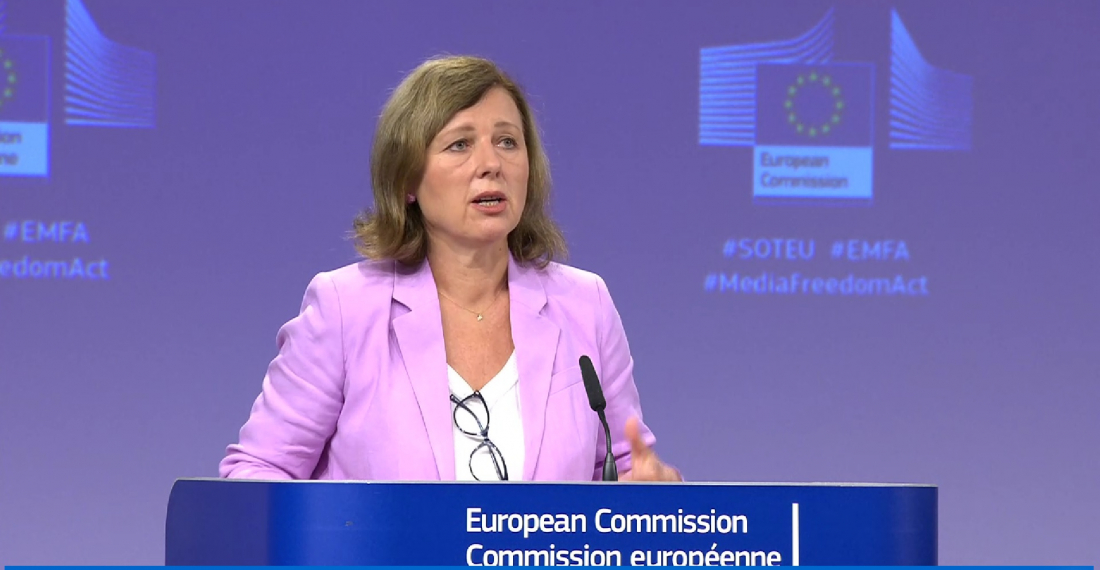The European Commission adopted on Friday (16 September) new European media legislation to protect media organisations and journalists against political interference in journalists' editorial decisions and surveillance against journalists. The new European law aims to strengthen press freedom and media diversity.
The Commission also presented new legislation on disclosing the names of media owners and funders. As will legislation on transparency regarding government advertisements.
European Commissioner for Values and Transparency, Věra Jourová, said: "We have seen over the past years various forms of pressure on the media. It is high time to act. We need to establish clear principles: no journalist should be spied on because of their job; no public media should be turned into propaganda channel. This is what we are proposing today for the first time ever: common safeguards to protect media freedom and pluralism in the EU”.
The Commission has long been concerned about press freedom in some of the member states, particularly Hungary and Poland.







